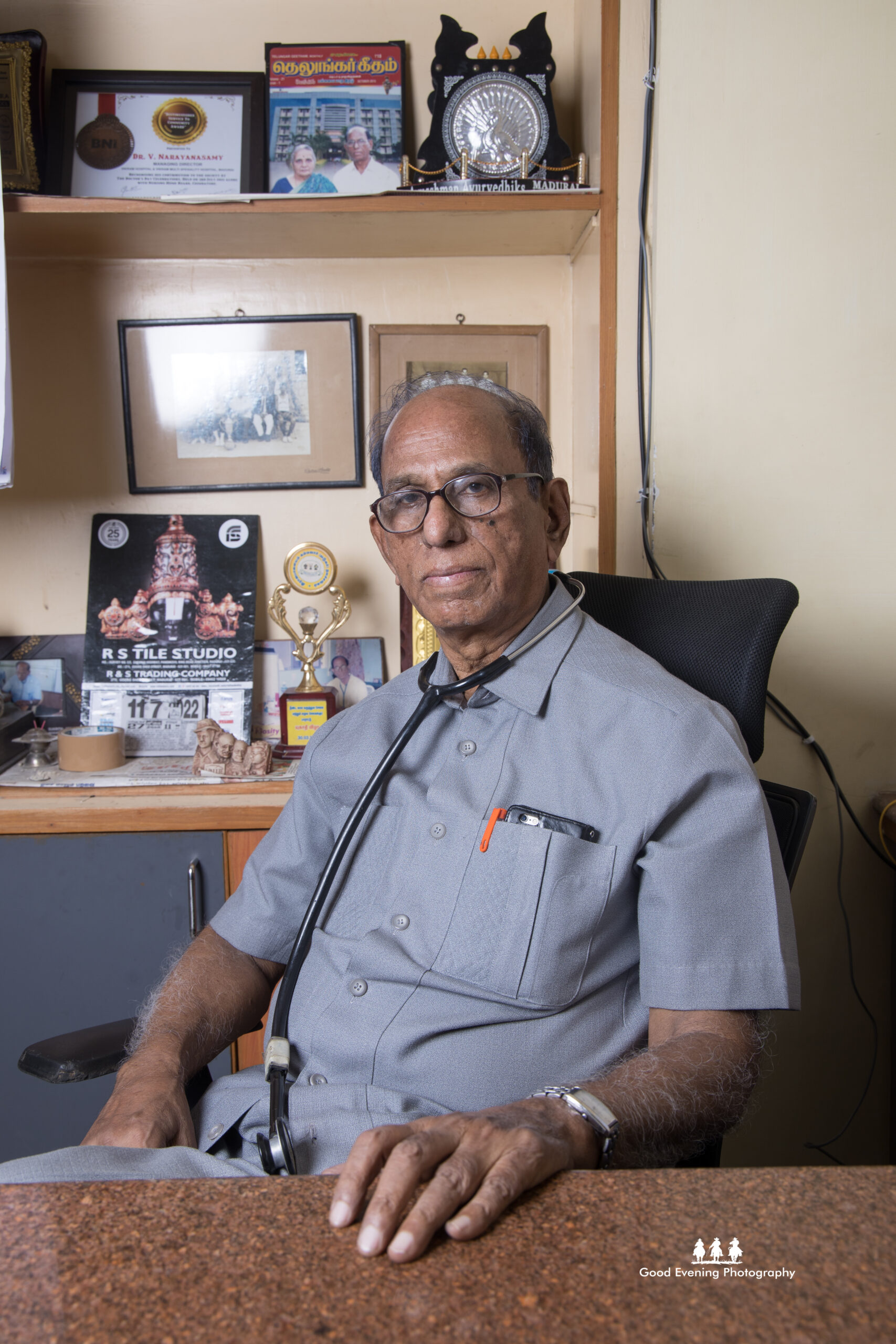General Surgery
- Home
- /
- General Surgery
Meet Our Team
The Vikram Hospitals plays a statewide services includes the Acquired

Dr. V. Narayanasamy MS (Gen Surgery).,
Chairman/Senior consultant surgeon
DEPARTMENT OF GENERAL SURGERY
At Vikram Multispeciality Hospital in Madurai, our team of general surgeons is highly acclaimed for their extensive training and experience in both the United Kingdom and the United States of America. Our expert general surgeons are dedicated to applying the most advanced techniques and cutting-edge technology to elevate the quality of care provided to patients with a wide spectrum of surgical requirements. The general surgery department at Vikram Multispeciality Hospital is specialized in the diagnosis and treatment of a diverse range of surgical conditions, offering comprehensive and patient-centric care.
Heading our department is the distinguished Chairman, Prof. Dr. V. Narayanasamy, MS (Gen Surgery). Dr. Narayanasamy is celebrated for his remarkable expertise and significant contributions to the medical field. His renown extends well beyond our institution. Under Dr. Narayanasamy’s esteemed leadership, our general surgery department upholds the highest standards of excellence. His guidance ensures that our surgical team is exceptionally well-prepared to manage a wide variety of surgical cases, consistently delivering top-tier care and striving for the best possible outcomes for our valued patients.

Our Services
- Surgical evaluation and treatment of gastrointestinal disorders
- Minimally invasive or laparoscopic surgeries
- Hernia repair surgery
- Gallbladder removal (Cholecystectomy)
- Appendectomy (removal of the appendix)
- Colorectal surgery for conditions like diverticulitis or colon cancer
- Endocrine surgery for thyroid and parathyroid conditions
- Soft tissue surgery for skin and soft tissue lesions
- Gastrointestinal endoscopy procedures
- Surgical treatment of trauma injuries
- Treatment of breast conditions, including breast cancer surgery
- Varicose vein surgery
- Wound care and management
- Provisional surgery for complications from previous surgeries
Frequently Asked Questions
What Types of Surgeries are Done in General Surgery?
General surgery encompasses a wide range of surgical procedures that deal with various organs and systems in the body. Some common types of surgeries performed by general surgeons include:
What is General Surgery in MBBS?
In the context of an MBBS (Bachelor of Medicine, Bachelor of Surgery) program, “General Surgery” refers to a fundamental branch of medical education and training. General surgery is a core component of medical education, where students learn about the principles and practices of surgical procedures that address a wide range of medical conditions. During the course of their MBBS studies, medical students receive foundational knowledge in various medical disciplines, including general surgery, to become competent physicians. This training is essential for understanding surgical techniques, patient care, and potential specialties for further specialization.
What is the Work of a General Surgeon?
A general surgeon is a medical doctor who specializes in surgical procedures involving various body systems. Their primary responsibilities include:
- Diagnosis: General surgeons assess patients, order diagnostic tests, and make surgical recommendations based on their findings.
- Surgery: They perform a variety of surgical procedures, including emergency surgeries and elective surgeries, to treat conditions like appendicitis, hernias, gallbladder problems, and more.
- Preoperative and Postoperative Care: General surgeons provide comprehensive care to patients before and after surgery, ensuring their safety and well-being throughout the surgical process.
- Consultations: They consult with patients to explain surgical options, risks, benefits, and expected outcomes, helping patients make informed decisions about their healthcare.
- Collaboration: General surgeons often collaborate with other specialists, such as anesthesiologists, radiologists, and nurses, to ensure a successful surgical outcome.
- Emergency Response: They are trained to handle emergency cases, such as trauma, acute infections, and critical injuries, requiring immediate surgical intervention.

